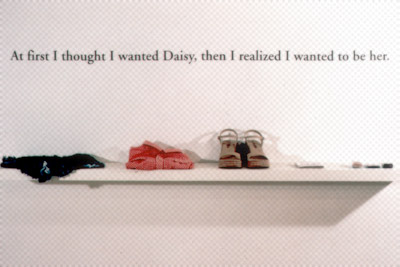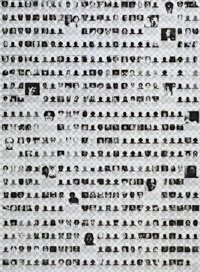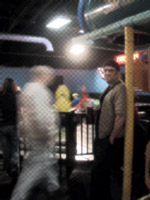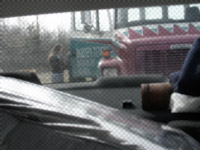AND THE ART CONTINUES

I am tired tonight. Words seem very hard. So I am going to offer an image tonight, or actually a piece I did a while back. Since I have been thinking about art a lot lately – as I have said before – I am going to offer an image tonight, one that has been going around in my head quite a bit. It is a piece I did for a show titled “Dukes of Hazzard, Revisited” which was first exhibited at the Cranbrook Academy of Art.
I think of this as a pivotal piece in the process of becoming the artist I have become. I look at this piece and say, “That was when I started to get it.” Whatever it may be. It is not a monumental piece, but it says what it has to say, it gets to what I was working with, it does what it need to do without gratuitous pretenses of artiness. It is a simple piece: a sentence on the wall, a plain white shelf, and the accoutrements of Daisy Duke – shorts, checked shirt, high-heeled sandals, sheer hose, base, blush and eyeliner. It is a simple piece, but I think it opens up a lot of possibilities, of positions, and of interactions for the viewer. No, it isn’t big, but it fits, it stakes out its space and fills it, and fulfills it.
I have been thinking about this piece a lot. I should make more work like this.






























